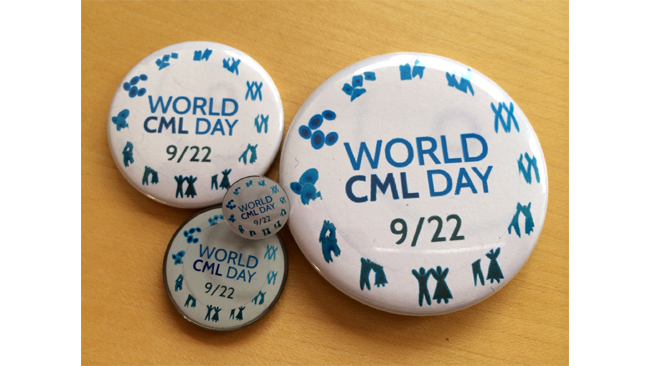
As
the world observes World Chronic Myeloid Leukemia Day in September, leading medical
experts emphasize the need of creating awareness aboutthe condition, a relatively uncommon type of bone marrow and
blood cancer. Chronic Myeloid Leukemia(CML)
occurs with an incidence rate of 0.4 to 3.9 per 100,000 patientyears, which
increases with age and has a slight male preponderance. It is a chronic disease in which patients must take
lifelong treatment and hence, experts stress its appropriate management and
adherence to treatment.
CML occurs due to spontaneous chromosome mutationwhich causes diseased white blood cells to
build up in huge numbers, crowding out healthy blood cells and damaging the
bone marrow.
Dr
Sandeep Jasuja, HOD – Medical Oncology, Sawai Man Singh (SMS) Hospital, Jaipursays, “CML patients are often asymptomatic until the condition becomes severe. More than
50,000 individuals are diagnosed each year, and it has been noted that most of
them are 50 years of age or older.Possible symptoms can include a feeling of
fullness, unexpected weight loss, abnormal enlargement of the spleen, and
fatigue. We have observed that if CML is detected early, 80–90% of the
disease's progression can be stopped. Patients
need to understand that CML is not contagious and with modern innovative
treatment options, patients have been seen to have a normal life.”
He
further added, “A complete blood count (CBC) with peripheral blood smear can be
done to understand the number of white blood cells, red blood cells, and
platelets and their characteristics. Effective treatment adherence and
commitment to treatment can prevent CML from returning after remission.”
*Dr
Rayaz Ahmed, Senior Consultant, Department of Hemato-Oncology & Bone Marrow
Transplant, Rajiv Gandhi Cancer Institute*mentioned, “CML patientsoften do not showcase any signs and symptoms until
the condition becomes severe. However, CML can be diagnosed with a blood test
wherein an abnormal white blood cell count might be an indicative sign of the
condition. This is followed by a physical exam and bone marrow test. Some of
the symptoms, if they do occur, may include fatigue, loss of appetite, weight
loss, and easy bleeding. Symptoms of CML typically develop gradually and only in a tiny
percentage of people does thistransform into an aggressive form of severeleukemia
with more severe symptoms. Patients need to
bear in mind that CML is not a deadly condition and with modern innovative treatment
options, patients have been seen to have a normal life expectancy.”
For CML, regular monitoring and adherence to
treatment are essential. According to DrAhmed,CML is effectively manageable through consistent
treatment. A lack of adherence to treatment protocols can make the condition severe.
Therefore, it is recommended that patients continue to take medication as
prescribed by their healthcare professional. Tyrosine kinase inhibitors (TKIs) are the
initial treatment of choice for most people with CML and more than two-thirds
of patients achieve long-term control of the disease with this.”
While CML is caused by a genetic mutation in the stem cells, its exact cause is not known. The condition is not hereditary and cannot be passed on to future generations.